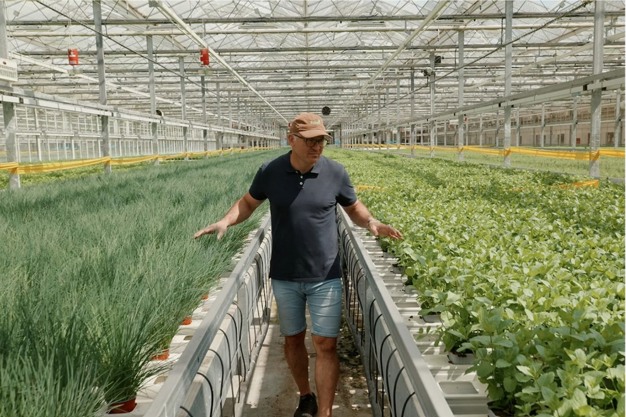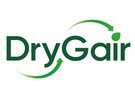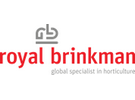In a recent video, Václav Bajko, technical manager of Bylinky S.R.O., discusses his challenges with basil downy mildew.
According to Bajko, dehumidification has not only solved the problem of mildew but provides additional benefits, including significant savings on heating.
The largest fresh herb grower in the Czech Republic
"Bylinky S.R.O. is 100% owned by the Swedish company Spisa Group, which has several facilities in Europe, including Poland, England, Portugal, and Sweden", says Bajko.
"We cultivate herbs, currently on an area of 2 hectares, making us the largest producer of fresh herbs in the Czech Republic."

Challenges with downy mildew
Bajko continues to discuss his challenges with mildew, "We used to have a big problem with downy mildew on basil, especially during the summer. The problem is most pressing when it rains outside and the temperatures are high, those are ideal conditions for the development of downy mildew on basil leaves."
"Our goal is to achieve a maximum of 80% relative humidity in the greenhouse. During the winter, as soon as humidity would rise above 80%, we would heat and ventilate. But this isn't possible during the summer months, from spring to autumn."
This is a common challenge for greenhouse operators. Heating and venting are limited in its ability to reduce humidity and often leave growers with no practical solution.
Václav points out, "We currently have six DryGair units at Bylinky, to help us dehumidify and improve the climate in the greenhouse. We bought our first two DryGair units in 2020."
Solving downy mildew using DryGair dehumidifiers
Jan Jemelka of Royal Brinkman adds, "A modern alternative to the classic method of heating and venting is to replace it with the DryGair units. It solves the problem of excess moisture. But it also creates air circulation – the movement of air in the greenhouse, so that you don't have a 'dead climate', which is very important for crop development."
"At the same time, you'll reduce fungal diseases, without needing to use any agrochemicals. Additionally, as a bonus, you get all the water it extracts from the air, which you can use in the growing process."

Energy savings and return on investment
"However, one of the main advantages of using DryGair is that you save an average of around 50% on greenhouse heating costs.", says Jemelka.
Bajko says, regarding his DryGair installation, "For us, the decision was mainly about preventing yield loss. If the mold spreads, and it spreads very quickly, it can do a lot of damage, resulting in a loss of sales income. We also receive penalties from our customers. We want to avoid that."
He sums things up, "Since using DryGair we've had no problem with downy mildew on basil, which is our main product and the best-selling product in our portfolio of 12-14 species of herbs."
Interview video (audio in Czech)
For more information:
DryGair
www.drygair.com
https://drygair.com/testimonials/bylinky-success-story/
Bylinky S.R.O.
https://www.bylinky.cz/
Royal Brinkman Poland
https://royalbrinkman.pl/
